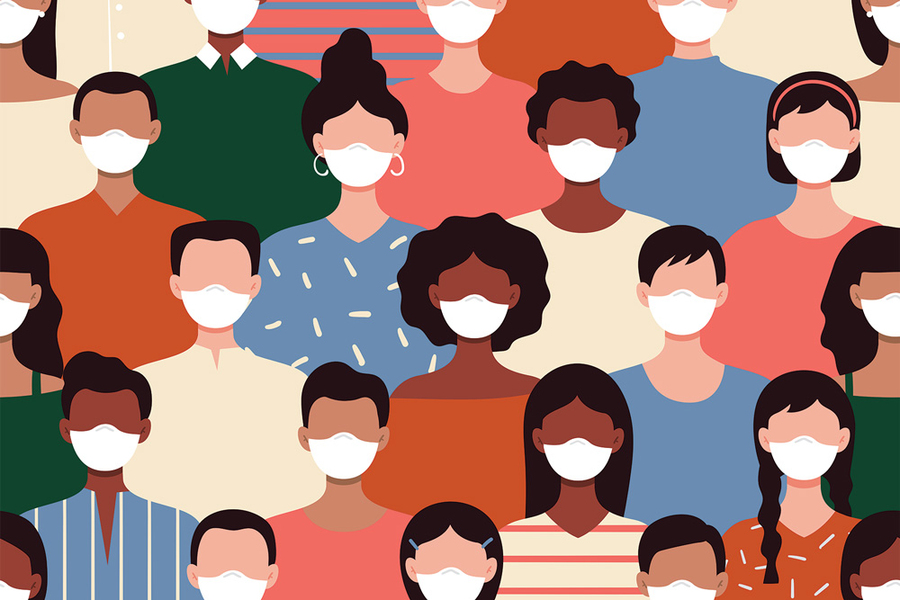A new facemask designed by the engineers at MIT and Harvard University can diagnose the wearer with COVID-19 within 90 minutes.
The novel facemasks are implanted with tiny, disposable sensors, which can be fitted into other facemasks, detecting coronavirus as well as other viruses.
The sensors are made from freeze-dried cellular machinery that the researchers have previously developed for detecting viruses such as Zika and Ebola.
The MIT and Harvard researchers, who published their findings in Nature Biotechnology, have shown that the sensors could be incorporated into facemasks as well as clothing such as lab coats, offering a new way to screen health care workers’ exposure to viruses and other pathogens.
Senior author James Collins said, “We’ve demonstrated that we can freeze-dry a broad range of synthetic biology sensors to detect viral or bacterial nucleic acids, as well as toxic chemicals, including nerve toxins. We envision that this platform could enable next-generation wearable biosensors for first responders, health care personnel, and military personnel.”
The sensors are designed in such a way that they can be activated by the wearer before performing the test. The results are then displayed on the inside of the mask.
Lead author Luis Soenksen said, “We ended up identifying a couple that are very widely used in the fashion industry for making garments. The one that was the best was a combination of polyester and other synthetic fibers.”
The sensors are designed to produce different types of signals, including a color change or a fluorescent or luminescent signal that can be read with a handheld spectrometer.
The team also designed a wearable spectrometer that could be implanted into the fabric, where it can read the result and transmit it to a mobile device.
Lead author Peter Nguyen said, “This test is as sensitive as the gold standard, highly sensitive PCR tests, but it’s as fast as the antigen tests that are used for quick analysis of COVID-19.”
The researchers have now filed for a patent on this technology, hoping to team up with a company to develop the sensors. Collins said the facemask is most likely the “first application that could be made available.”
“I think the face mask is probably the most advanced and the closest to a product,” he added. “We have already had a lot of interest from outside groups that would like to take the prototype efforts we have and advance them to an approved, marketed product.” The article was published in Science Daily.























